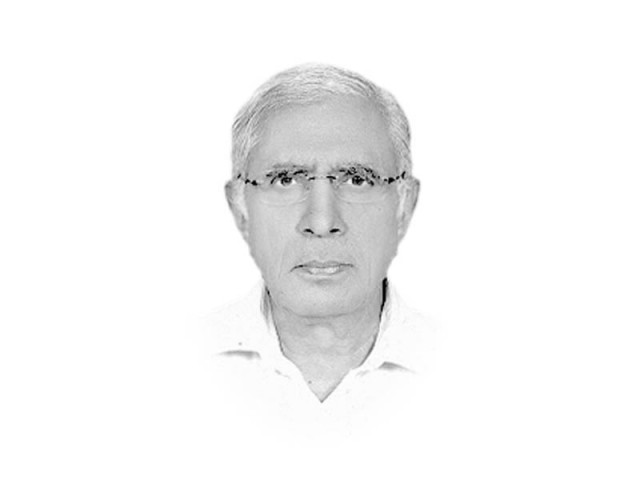Media needs regulation not control
Regulatory bodies should never be under the control of government but must be made answerable directly to parliament.

More often than not, ruling parties have manipulated the media to their own political advantage. And at times, the opposition too, has been seen to have managed the media to the disadvantage of the government of the day. So, it would be in the respective interests of the political parties contesting the next elections to formulate their respective media policies aimed not at curtailing its freedom but at helping it in the enhancement of its professionalism, neutrality, impartiality and objectivity, free from biases.
The minimum the political parties could promise in their particular media policies in this respect is to free Pakistan Television Corporation (PTV), Pakistan Broadcasting Corporation (PBC), Shalimar Recording Company (SRC) and the Associated Press of Pakistan (APP) from government control. Successive governments have misused these public sector entities as propaganda vehicles, promoting their narrow political interests while denigrating the opposition’s performance, all at the cost of national interests. Liberating these entities from government control should not pose any problems. All that the political parties inside the new parliament need to do is to mobilise the required number of votes from across the aisle to amend the relevant laws in order to facilitate setting up of autonomous management boards for these organisations, comprising representatives from civil society, academia, the legal fraternity and eminent citizens reflecting Pakistan’s diverse sociopolitical, ethnic and cultural communities and opinions and making these boards accountable to elected parliament.
Similarly, their manifestos could also take a closer look at the regulatory infrastructure that the government has put in place to regulate the electronic and print media and formulate policies aimed at liberating these bodies — Pemra and the Pakistan Press Council ( PPC) — from government control. Here, too, they could consider using the same method as the one suggested for liberating the government-controlled media organisations. In any case, regulatory bodies should never be under the control of the government but must be made answerable directly to parliament. And while amending the relevant laws, Pemra and the PPC could also be merged into one regulatory body, to regulate all media forms — the print, the electronic and the on-line.
While the public sector media vehicles have been turned into pocket organisations of the government of the day, the private sector ones seem to have sold their souls to the market. But more than the money, the private electronic media owners seem to be hankering after political clout, potent enough to help them ward off questions like where do they get their money from and how do they spend it? To help them escape tax evasion charges and closer scrutiny to see the state of governance in each of these organisations. To help avert questions like was the driver of ARY, who died during the riots in Karachi on September 21 insured? Was he provided with a bulletproof jacket before being set on duty to such a dangerous location? To enable them to dip their hands without being detected in the government secret funds reserved for buying media organisations and media practitioners. And to profit from government’s opaque advertising policy without being challenged. The current media policy of the government has facilitated media monopolies with one organisation owning all forms of media — Print, TV, radio and on-line. We could learn how to curtail these monopolies by visiting the relevant British cross-media ownership laws. The reformed and expanded Pemra out of government control would surely be able to neutralise and clip the political clout of the private media organisations and also keep them turning into free-for-all monopolies.
Published in The Express Tribune, September 26th, 2012.
















COMMENTS
Comments are moderated and generally will be posted if they are on-topic and not abusive.
For more information, please see our Comments FAQ